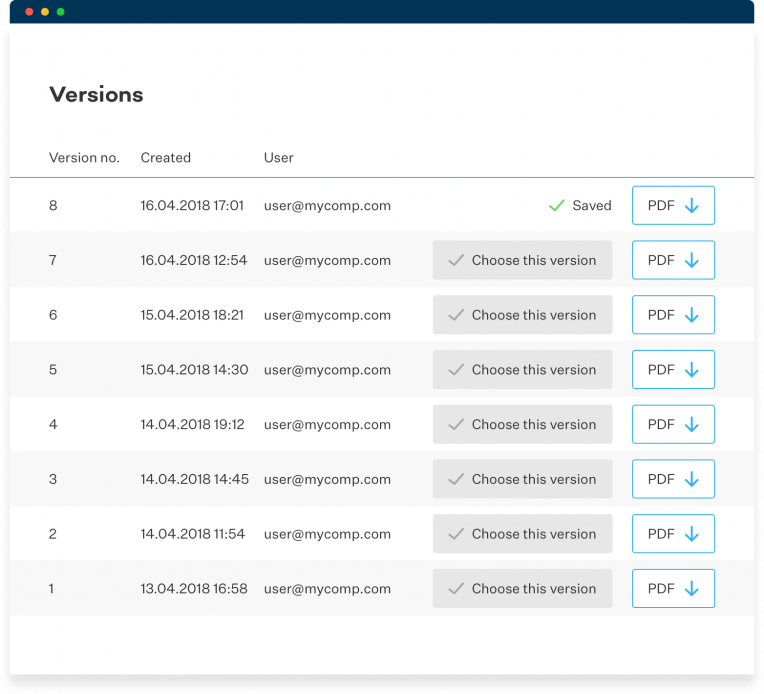
By integrating with other accounting and legal practice management software, InvoiceSherpa streamlines the entire process, making it easier for law firms to stay on top of their receivables. Explore the top accounting software options for law firms and find out how they can streamline your financial management. It involves keeping these funds separate from the firm’s operating funds, as required by state bar association rules. Understanding the importance of trust accounts and how to avoid common mistakes can help law firms maintain their financial integrity. To learn more about best practices in trust accounting for law firms, continue reading our blog.
What to look for in a legal bookkeeper

Consider asking the prospective accountant about their familiarity with employment tax regulations and whether they have worked with independent contractors common in the legal industry. Good bookkeeping uses charts of accounts to organize all these money stories properly. Also, using double-entry accounting makes sure every debit has an equal credit.
Misattributing Transactions
As law firms navigate the complexities of financial management, leveraging technology becomes indispensable for maintaining a competitive edge and upholding the highest standards of client trust and regulatory adherence. In most cases, law practice management software doesn’t include an accounting element specialized for law firms. This leaves you with the purchase of additional https://www.business-accounting.net/ non-legal accounting software. As a result, you’re left with multiple platforms and an accounting system that is not tailored specifically for law firms. Bookkeeping, on the other hand, is the day-to-day recording of financial transactions. This includes logging expenses, payments, and revenue, as well as managing invoices and tracking client fund transactions.
Time tracking
- Before adding anyone to your payroll, make sure your workers are categorized correctly as either employees or independent contractors.
- Consider whether your firm would be best suited for combined practice management / accounting software (or separate software for each), and consider the specific features your law firm needs.
- But no matter how much knowledge you hold, this guide will help you attain a high level of fluency in both practices.
- If any of these balances don’t match each other, that means there’s a mistake in one of your ledgers.
Absolutely, most law firm accounting software is designed to manage trust accounts meticulously, ensuring compliance with legal standards. In conclusion, accounting and bookkeeping are crucial for law firms to comply with regulations, foster growth, and protect their reputation. Understanding legal accounting terms and practicing sound financial management is essential. Additionally, the accountant should be well-versed in leveraging the preferred accounting method – whether accrual or cash – that best suits the needs of the law firm. Furthermore, it’s essential to consider an accountant who can effectively manage client billing and invoicing processes while maintaining accurate financial data.
The Role of Technology in Legal Accounting
Without a professional accountant, you risk mixing up revenue and income, two different types of proceeds. On the other hand, income refers to what is left over after the firm’s costs and expenses have been deducted from the revenue. Taxes, property expenses, legal dues, and payroll are typical expenses law firms must deduct https://www.quick-bookkeeping.net/operating-cash-flow-calculation/ from revenue to get income. Mixing up the two can give you a false picture of your firm’s financial health. A bank account allows tracking all incoming and outgoing funds, which is necessary for accurate record-keeping. Having a separate business account allows for greater control over the accounting of clients’ funds.

Look into the pros and cons of both methods for your firm, then be consistent going forward to ensure your records are accurate and easy to track. This means taking steps to ensure data security (using legal accounting software that maintains robust security standards can help with this). Unfortunately, far too many firms utilize outdated and ineffective tools to perform their accounting functions. This could be putting your firm at a significant disadvantage as inadequate law firm accounting software can lead to excessive billing process errors and inaccurate time tracking. Trust accounting is the bookkeeping of clients’ income and expenses that are held in trust. This type of accounting for law firms may include assets from settlements or retainers fees.

QuickBooks Online is an industry leader in the accounting field, thanks to its strong feature set and scalability. In addition to core accounting capabilities, it has robust reporting and transaction tracking tools, invoicing capabilities, inventory management features and mobile app functionality. Here are NerdWallet’s picks for the best small-business accounting software, including why we selected each product, monthly price details and features checklists for easy product comparisons.
The advantage of this method is that it gives you a more realistic idea of (expected) income and expenses over a period of time. Finally, cash basis accounting gives you more flexibility for end-of-year planning, because business income isn’t taxed until it has been received, and expense transactions aren’t recorded until cash is paid. This allows for the delay or acceleration of income and expenses by changing the timing of paying bills or invoicing clients.
The fee structure for every payment provider differs, and before you decide, ensure you know your numbers and the effect of the provider’s fee on your bottom line. The income statement provides other information like the status of revenues, pinpointing irregular or inconsistent expenses, and overall company performance. The recording of daily transactions in a consistent way is known as bookkeeping.
Fully integrated legal software suites will include accounting features along with other important features like practice management and time and billing. One of the easiest ways to make accounting for lawyers quicker, simpler, and more accurate is to use accounting software built for law firms. This can be legal accounting solutions, or it can be integrations between internal vs external financial reporting legal practice management solutions and best-in-class accounting tools. In the ever-evolving landscape of the legal industry, Technology plays a pivotal role in transforming legal accounting practices. The integration of advanced technological solutions into accounting processes not only streamlines operations but also enhances accuracy, efficiency, and compliance.
Take the time to set expectations with new clients, stick to a consistent schedule, and agree on charges in writing first. Finally, make your invoices as clear as possible, with accurate descriptions for each billed item. Attorneys have to pay various expenses for both day-to-day operations and on behalf of clients. If you’re doing this manually, it can be challenging to record these accurately and maintain strict segregation between operational and client expenses. But by automating your expense tracking with a specifically designed software platform, you can streamline this process and eliminate the risk of human error.
